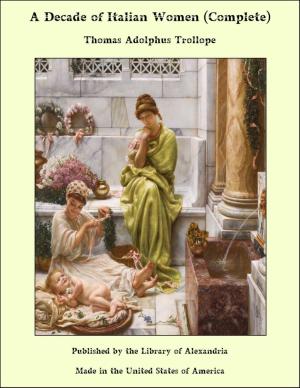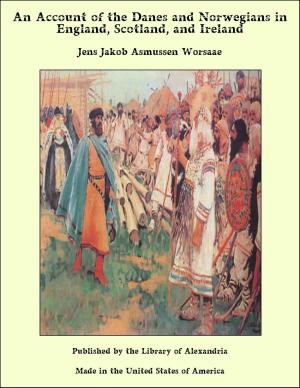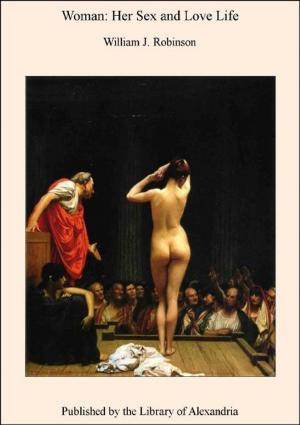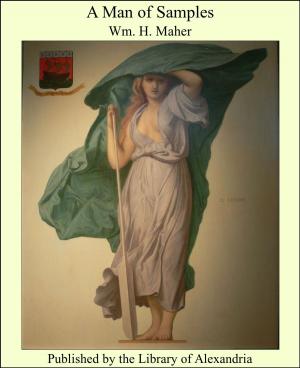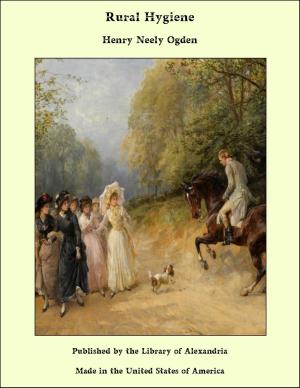| Author: | Silas Kitto Hocking | ISBN: | 9781465605238 |
| Publisher: | Library of Alexandria | Publication: | March 8, 2015 |
| Imprint: | Language: | English |
| Author: | Silas Kitto Hocking |
| ISBN: | 9781465605238 |
| Publisher: | Library of Alexandria |
| Publication: | March 8, 2015 |
| Imprint: | |
| Language: | English |
Jess pricked up her ears, and shook her head as if demanding a loose rein, and then sprang forward with the swiftness of a panther. But she took the gate a moment too soon; there was a sharp crash of splintered wood, a half-smothered cry of pain, and horse and rider were rolling on the turf beyond. Ralph Penlogan caught his breath and turned his head suddenly. The sound of breaking wood fell distinctly on his ear, and called him back from his not over-pleasant musings. He was angry with himself, angry with the cause of his anger. He had stood up for what he believed to be his rights, had asserted his opinions with courage and pertinacity; and yet, for some reason, he was anything but satisfied. The victory he had won—if it was a victory at all—was a barren one. He was afraid that he had asserted himself at the wrong time, in the wrong place, and before the wrong person. The girl to whom he had spoken, and whose command he had defied, was not responsible for the social order against which he chafed, and which pressed so hardly on the class to which he belonged. She was where Providence had placed her just as much as he was, and the tone of command she had assumed was perhaps more a matter of habit than any assumption of superiority. So within three minutes of leaving the stile he found himself excusing the fair creature to whom he had spoken so roughly. That she had a sweet and winning face there was no denying, while the way she sat her horse seemed to him the embodiment of grace. Who she was he had not the remotest idea. To the best of his recollection he had never seen her before. That she belonged to what was locally termed the gentry there could be no doubt—a visitor most likely at one or other of the big houses in the neighborhood. Once the thought flashed across his mind that she might be the daughter of Sir John Hamblyn, but he dismissed it at once. In the first place, Sir John's daughter was old enough to be married—in fact, the wedding day had already been fixed—while this young lady was a mere girl. She did not look more than seventeen if she looked a day. And in the second place, it was inconceivable that such a mean, grasping, tyrannical curmudgeon as Sir John could be the father of so fair a child. He had seen Dorothy Hamblyn when she was a little girl in short frocks, and his recollection of her was that she was a disagreeable child. If he remembered aright, she was about his own age—a trifle younger.
Jess pricked up her ears, and shook her head as if demanding a loose rein, and then sprang forward with the swiftness of a panther. But she took the gate a moment too soon; there was a sharp crash of splintered wood, a half-smothered cry of pain, and horse and rider were rolling on the turf beyond. Ralph Penlogan caught his breath and turned his head suddenly. The sound of breaking wood fell distinctly on his ear, and called him back from his not over-pleasant musings. He was angry with himself, angry with the cause of his anger. He had stood up for what he believed to be his rights, had asserted his opinions with courage and pertinacity; and yet, for some reason, he was anything but satisfied. The victory he had won—if it was a victory at all—was a barren one. He was afraid that he had asserted himself at the wrong time, in the wrong place, and before the wrong person. The girl to whom he had spoken, and whose command he had defied, was not responsible for the social order against which he chafed, and which pressed so hardly on the class to which he belonged. She was where Providence had placed her just as much as he was, and the tone of command she had assumed was perhaps more a matter of habit than any assumption of superiority. So within three minutes of leaving the stile he found himself excusing the fair creature to whom he had spoken so roughly. That she had a sweet and winning face there was no denying, while the way she sat her horse seemed to him the embodiment of grace. Who she was he had not the remotest idea. To the best of his recollection he had never seen her before. That she belonged to what was locally termed the gentry there could be no doubt—a visitor most likely at one or other of the big houses in the neighborhood. Once the thought flashed across his mind that she might be the daughter of Sir John Hamblyn, but he dismissed it at once. In the first place, Sir John's daughter was old enough to be married—in fact, the wedding day had already been fixed—while this young lady was a mere girl. She did not look more than seventeen if she looked a day. And in the second place, it was inconceivable that such a mean, grasping, tyrannical curmudgeon as Sir John could be the father of so fair a child. He had seen Dorothy Hamblyn when she was a little girl in short frocks, and his recollection of her was that she was a disagreeable child. If he remembered aright, she was about his own age—a trifle younger.

